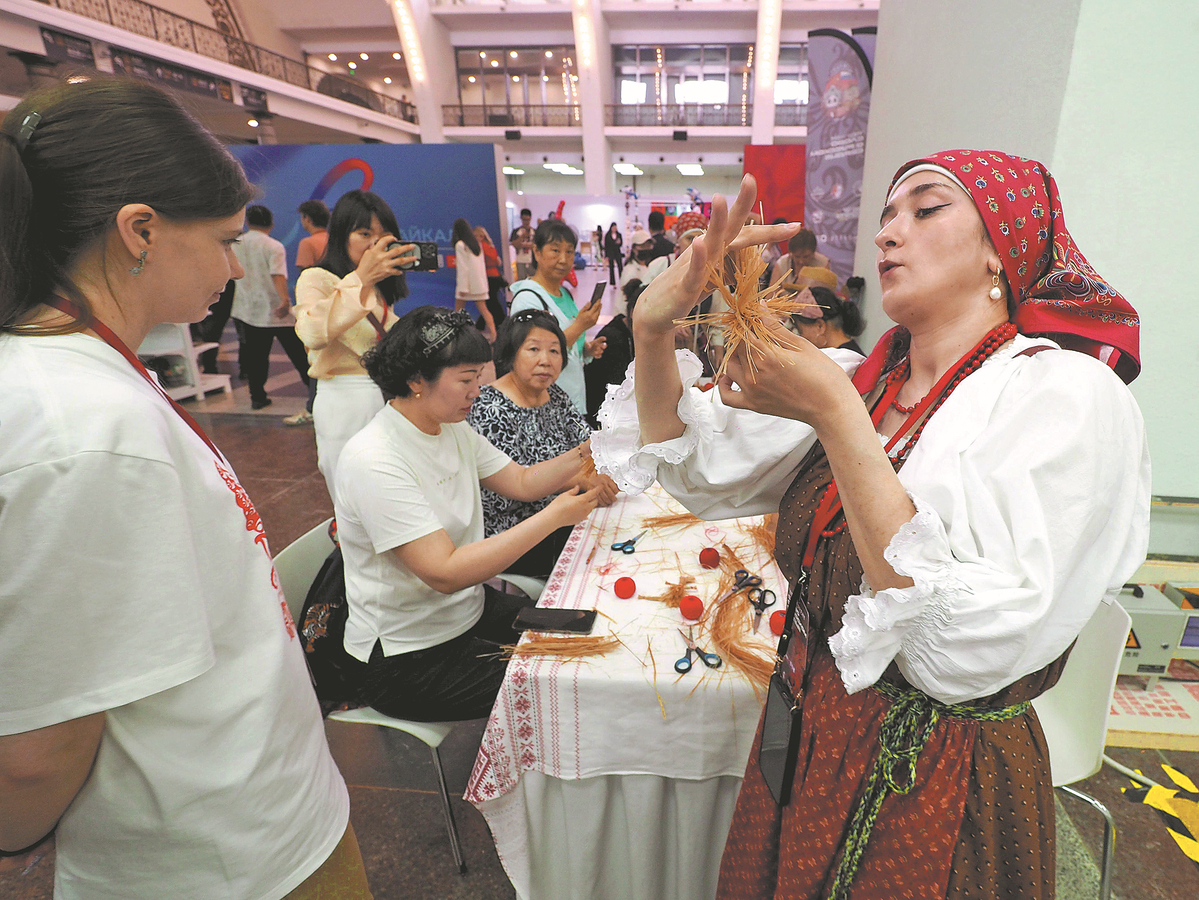Bonds that evoke feelings of Deja Vu
Beijing, Moscow draw closer under multiple partnership programs


Nostalgia symbol
Luan Yufeng, deputy general manager of the Beijing Exhibition Center Co Ltd, said: "The nickname stems from the restaurant's long history and its special place in the hearts of Beijing residents or those born in the last century. Almost everyone knows about the Moscow Restaurant. For many, Lao Mo is more than just a restaurant; it's a cherished symbol of nostalgia and a witness to the city's development and changes in recent decades."
The Moscow Restaurant, which opened in October 1954 next to the Beijing Exhibition Center, was the capital's first high-end Russian restaurant. It is the place where many had their first taste of Western cuisine. In a specific historical context, the Moscow Restaurant left an indelible mark, carrying the memories and feelings of a generation.
"The restaurant's unique Russian paintings and artist performances provide Beijingers with a window into Russian culture," Luan said. "It has also hosted many guests from Moscow, fostering friendship and interaction between the people of the two cities."
Of course, cultural exchanges between Beijing and Moscow come in many more forms than in transport and gastronomy. For example, through dynamic exchanges in tourism and education, Beijingers and Muscovites are gaining deeper insights into each other's worlds, igniting an enthusiasm for cross-cultural communication.
Russia's Sputnik news agency said that in the 2024-25 academic year, 98 primary and secondary schools in Moscow had introduced Chinese-language courses. The Moscow government said more than 16,000 of its residents are learning Chinese, reflecting a growing interest in the language and the Chinese culture.
Andrey Karyakin, deputy director of the Russian-Chinese International School in Moscow, said that over the past decade, the number of Russians studying Chinese has risen sevenfold.
"The remarkable thing is that some Russian children already have a basic grasp of the language when they enroll for the school. Parents encourage their children to speak Chinese, confident in the bright future of tourism and economic exchanges between the two countries."
In the first eight months of this year, Beijing had 179,254 visits by Russian tourists, almost four times the number for the corresponding period of 2023, the data from the Beijing Municipal Bureau of Culture and Tourism showed. This surge has helped place Russia at the forefront of European tourists visiting Beijing.
Romadina said some of her friends in Beijing have turned this influx into a thriving business, organizing itineraries for Russian visitors. During peak tourist season it is not uncommon for them to earn up to 1,000 yuan ($140) a day, she said. She sees the rising number of Russian tourists in Beijing as evidence of the strength of relations between the two cities and the two countries.


















